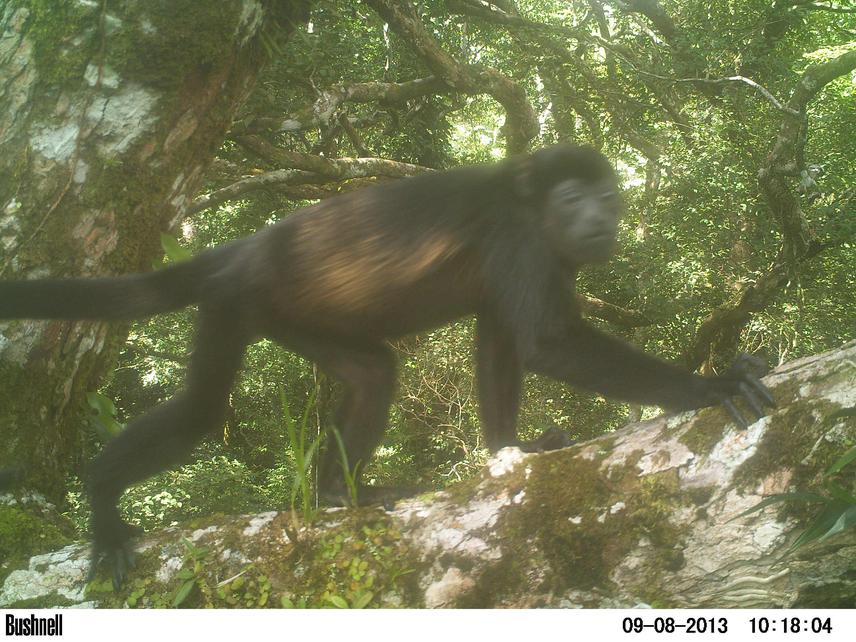Pedro Guillermo Mendez-Carvajal
Other projects
5 Oct 2010
Population and Conservation Status of Azuero Peninsula and Coiba Endemic Primates, Panama
28 Sep 2015
Actual Distribution and Conservation Status of the Ateles geoffroyi grisescens, Darien Province, Panama
2 May 2017
Population, Distribution and Conservation of Panamanian Primates, Republic of Panama
29 Apr 2019
Population Study and Monitoring of the Panamanian Spider Monkey, Ateles geoffroyi panamensis, Central Mountain Chain, Republic of Panama
This project is studying the Darien black spider monkey, and related fauna to obtain ecological data, and supporting locals with environmental education.

The FCPP is studying the endemic Darien Black Spider Monkey Ateles fusciceps rufiventris, unique of Darien, Critically Endangered Species. This is the first time an ecological project has been conducted for this species since its last scientific description in Panama, by Kellogg and Goldman (1944). We are using the Orion Camera System (OCS) to monitor arboreal fauna at canopy, a technique that is facilitating to understand the actual diversity and circadian activity of the arboreal fauna. Data obtained will be important to inform the locals and the Environmental Authority of Panama (ANAM), about how is the ecology and mammal diversity in this area poorly studied, and will release new information about habitat use to better protect these mammals from the deforestation.
The project also involves local people, who receive environmental information and training to value and conserve their natural resources as a part of our team. Informative talks, t-shirts with messages and bookmarks have been distributed around the near towns, restaurants and public transportation to create conscience about habitat loss and poachers effects in this monkey and its environment. The spider monkey of Darien is one of the larger pollinators and seed dispersers that help directly with the survivorship of other terrestrial mammals, supplying them with fruits that fall down while the monkeys are eating. We thank very much the II Rufford Small Grants for their support conserving this important non-human primate in Panama.